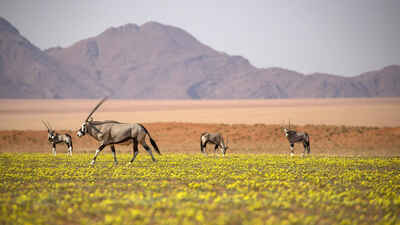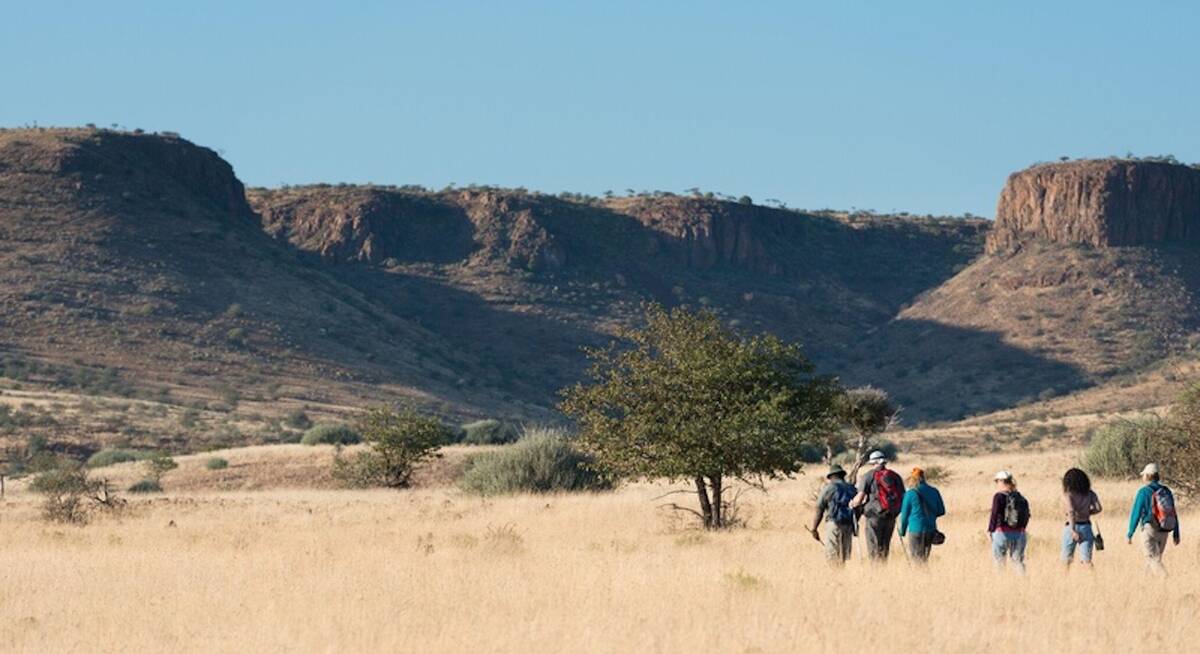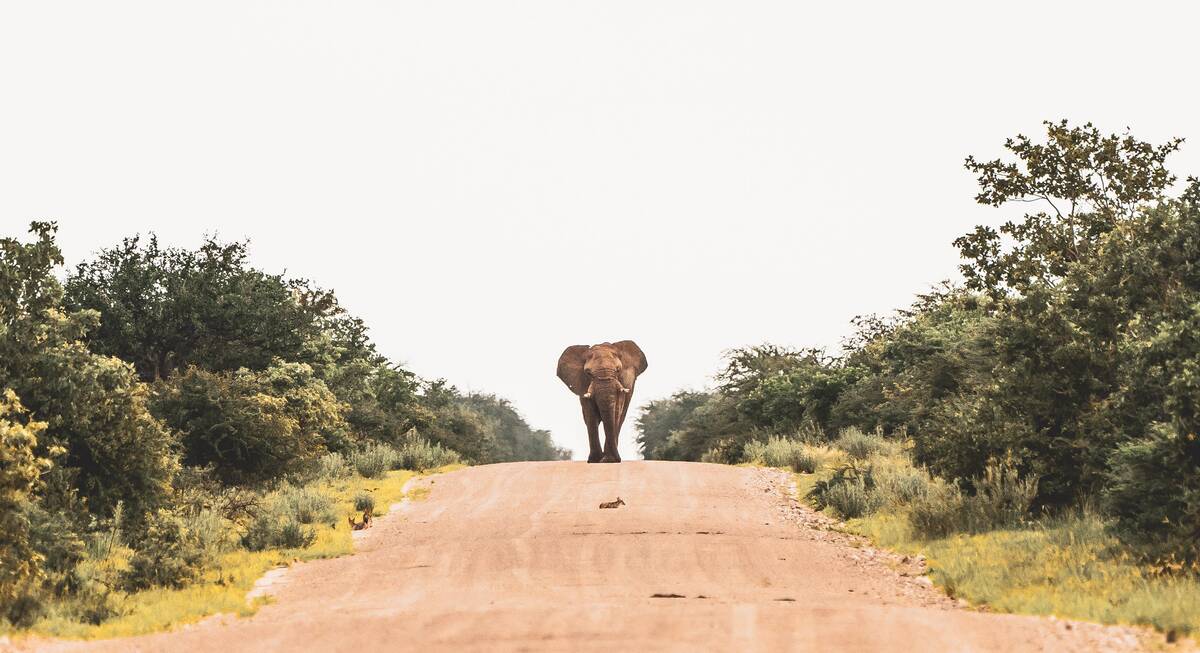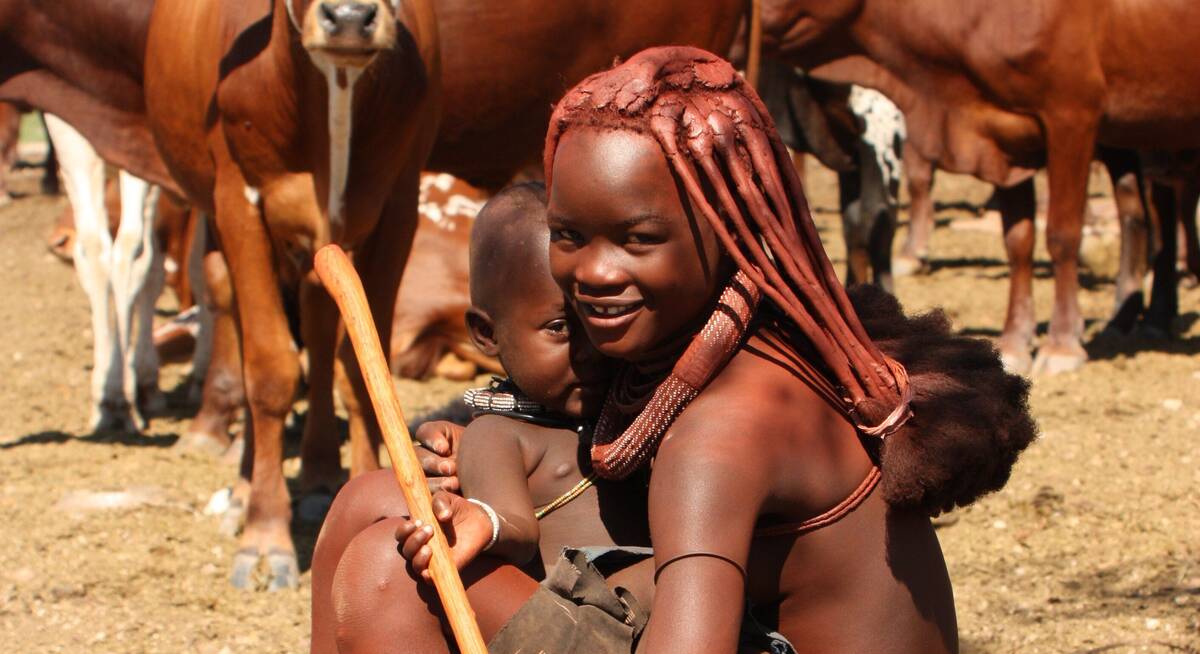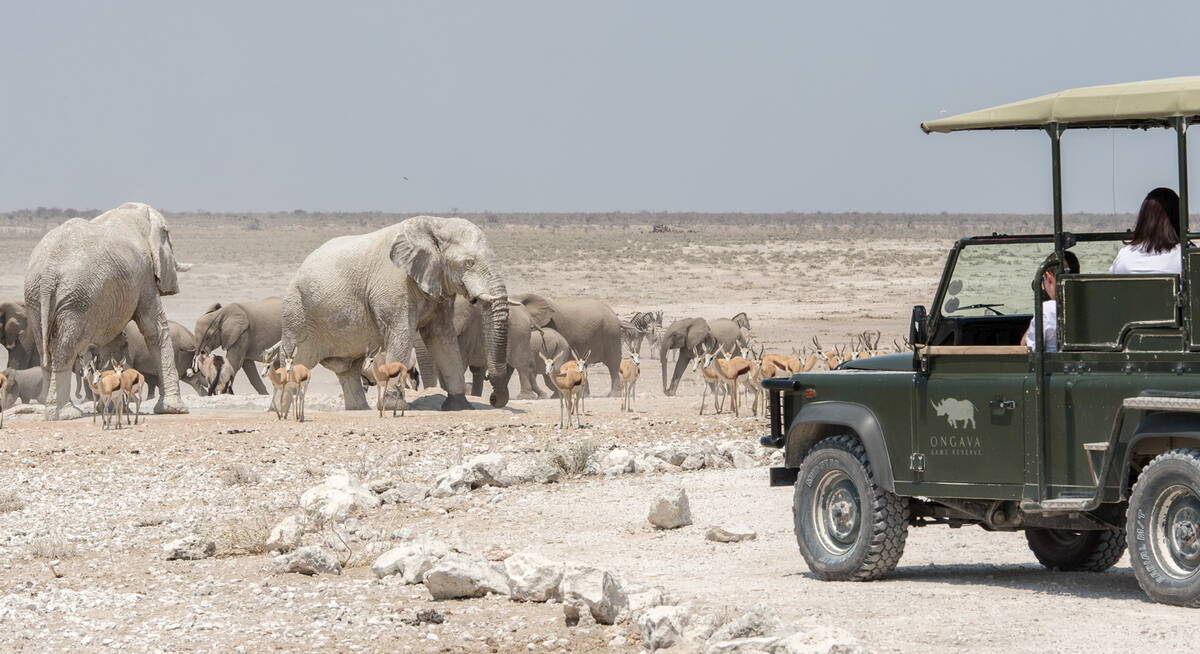Oryx in Africa
Oryx are impressive antelopes, with a powerful physique and elegant markings set off by rapier-like horns. Adapted to arid habitats, they cut a distinctive dash in some of Africa’s harshest landscapes.
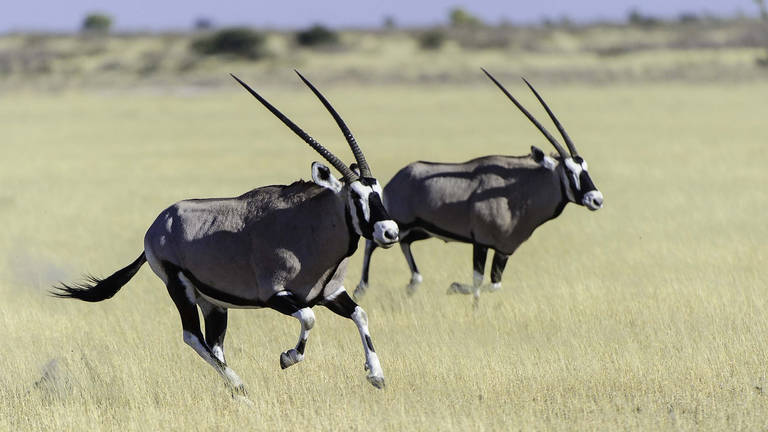
Quick facts about Oryx
| Scientific name: | Oryx beisa and Oryx gazella | Habitat: | Arid savannah |
|---|---|---|---|
| IUCN status: | Endangered (O.b) /Least Concern (O.g) | Adult weight: | 120–210kg (O.b) /180–240kg (O.g) |
Sub-Saharan Africa is home to two species of oryx: the endangered East African oryx (O. beisa), which occurs in two subspecies; and Oryx gazella, the gemsbok (pronounced “hemsbok”), its slightly larger and more numerous south-west African cousin.
Both are sturdy, short-legged members of the Hippotraginae antelope tribe, with a pale grey or fawn coat, smart black markings and impressively long, straight horns that are slimmer but slightly longer in females. Gemsbok have more extensive black markings.
Adapted to arid savannah, both species generally form groups of 10–40, supplementing their grazing during the dry season by digging up tubers and other underground plants. Dominant bulls clash horns in jousts with territorial rivals.
1.25m
Record horn length
3.5 months
Age calves develop adult markings
3 weeks
Duration mothers hide new-born calves
45%
Gemsbok population on private land
Africa's top camps for seeing oryx
Based on 1620 reports by our travellers since May 2018, the camps below have the best chances of sighting oryx. Simply follow the key below.
Best chances to see
Good chances to see
Some sightings
No sightings yet
Where to see oryx in Africa
Gemsbok are easily seen in the Kalahari regions of southern Africa and abundant on private reserves. The East African oryx takes more finding, but occurs in suitable habitat across Kenya and Tanzania.
Top tips for viewing oryx
A line of gemsbok cresting the apricot dunes of the Namib desert is one of Africa’s picture-book wildlife spectacles. This antelope is synonymous with the thirst-lands of the southwest, ranging from Namibia east across the greater Kalahari. Top spots include the Etosha and Namib-Naukluft national parks (Namibia), Central Kalahari Game Reserve (Botswana) and Kgalagadi Transfrontier Park (Botswana/South Africa).
Look out for their distinctive large-hooved tracks in the sand. Habituated gemsbok are surprisingly approachable, and you should take care on foot, as some individuals can be aggressive.
The East African fringe-eared oryx (O.b callotis) occurs as far south as Tarangire National Park in Tanzania, while in Kenya, the Laikipia conservancies, Samburu Reserve and Meru National Park are home to the endangered northern subspecies (O.b. beisa), known as beisa oryx.
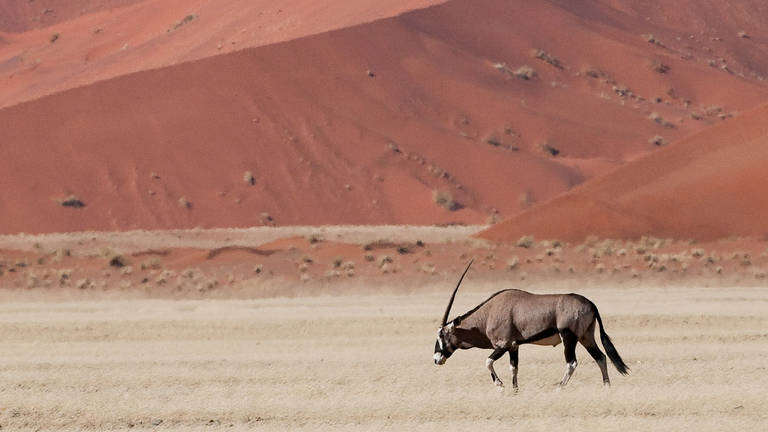
Holiday ideas to see oryx
Based on our travellers experiences, these are the holidays which will give you the best chances of good oryx sightings
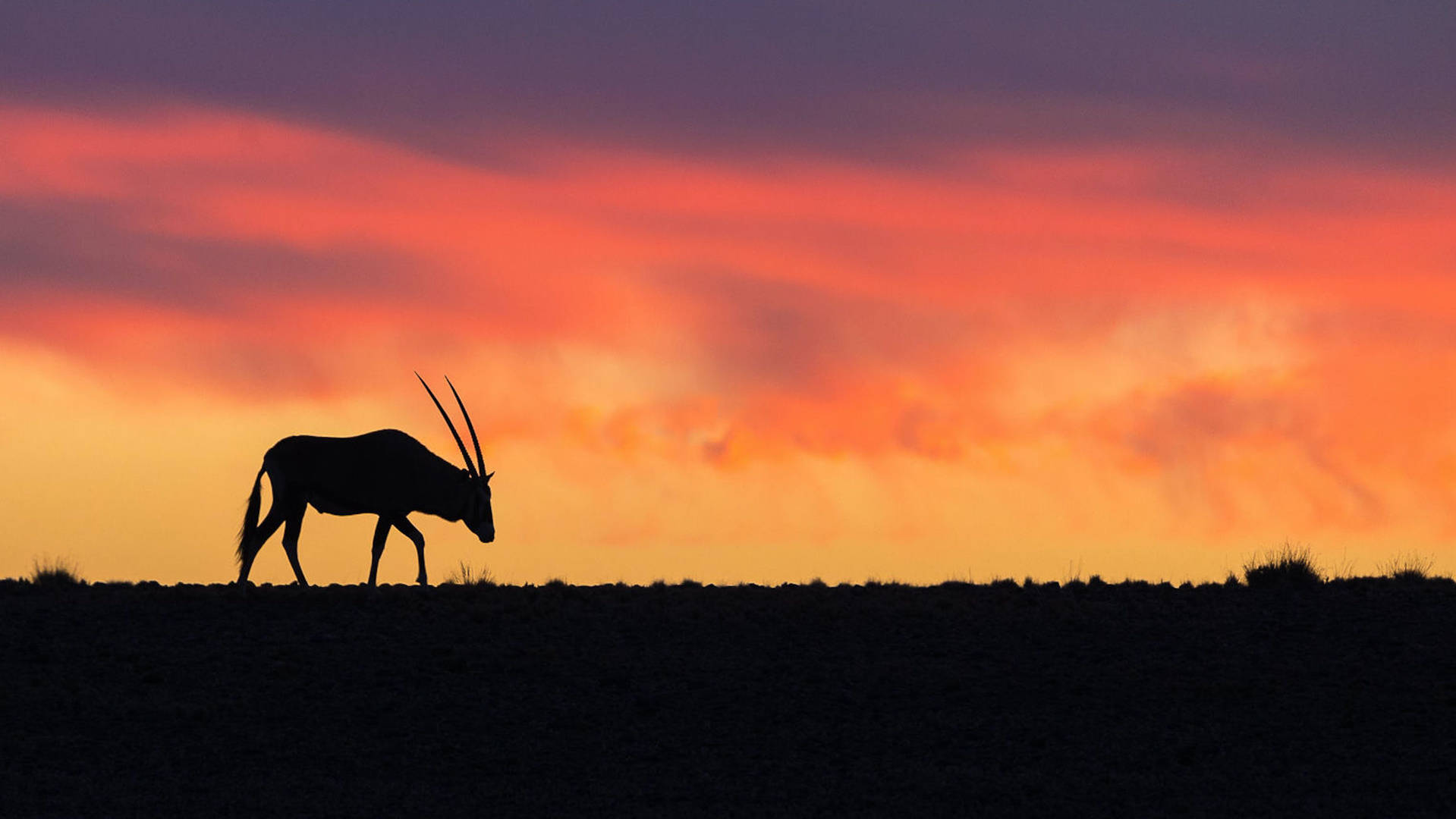
Our top destinations for oryx
Click below for detailed information about oryx in these countries, including our latest sightings data from the camps and lodges there.
